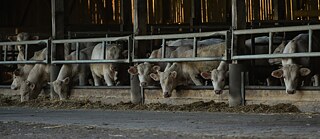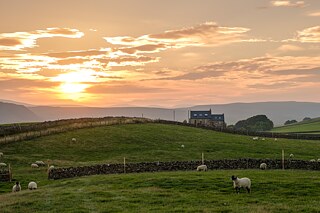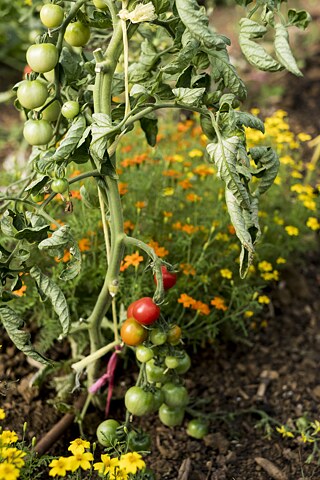Less Meat at the Catering
Eat Your Greens!

In January 2020, the UK’s Committee on Climate Change (CCC) published a report that suggested that the British public reduce their meat consumption by 20 percent and that public sector services take an active part in that process since they feed a quarter of the UK’s population. On the 1st of April 2020, trade magazine Public Sector Catering along with other partners announced their 20 percent Less But Better Meat Campaign, imploring public sector caterers in the UK to make the pledge.
By Lucy Rowan
Whether for health, animal welfare and/or environmental reasons, now more than ever before Britons are giving meat the axe. 2021 figures from YouGov suggest that 27 percent of adults in the UK are actively restricting their meat intake. Out of all the British cities, the Independent reports that London is paving the way for meat-free options not only in the hospitality sector but also in public sector catering. If there was ever a better time to push a meat-reduction campaign, it would be 2021.


More Choices for a Greater Impact
As one of the UK’s largest public sector catering companies, Sodexo UK and Ireland employs around 30,000 people. Recognising that agriculture is a significant contributor to greenhouse gas emissions, head of the food platform Daniel Corlett says that “increasing the range of plant-based meals Sodexo offers a positive step towards reducing our carbon footprint”. However, Sodexo decided to take it one step further by committing not only to the 20 percent Less Meat campaign, but instead, to ensuring that a third of all of their menus are plant-based dishes.Of all the spheres of public sector catering, both Foad and Corlett made a point of mentioning that schools were the most compliant to get on board. “In schools, caterers have the opportunity to make changes and children can be more easily persuaded to accept more plant-based options”, says Foad. But it’s not just schools that have willingly got on board with the campaign. One of the most compliant sectors has been universities but for differing reasons. “Universities have less scope to impose change, but have a customer base that is generally very receptive to the idea of cutting meat consumption and embracing alternatives”, says Foad.

However, Klein warns that trying to push beyond 20 percent could be provocative for some students and almost lure the opposite effect. “I went to Goldsmiths for my undergraduate and they no longer serve any meat at all and I think that's a bit too extreme”, explains Klein. This transition towards completely erasing meat from university menus is something that Berlin universities have been striding ahead with. Since 2010, the Guardian reports that “Berlin’s Free University has had a canteen selling only vegetarian food, called Veggie No 1. A vegan-only canteen, called Veggie No 2, opened its doors in 2019”.
Much Needed Dialogue with Farmers
Although the Education sector across the continent may have invited similar campaigns with wide arms, not all of the public sectors have been so acquiescent. The British prison catering service, for example, felt unable to make a formal commitment without governmental approval“. Nevertheless, it supported the campaign in principle and, indeed, prison menus are among some of the most progressive within the public sector”, says David Foad. The armed forces caterers were another group that could not commit without Government backing. Given the nature of their catering, Foad assures, that it is a very difficult challenge to provide operational meals to active soldiers, especially those that cut meat.One partner organisations of the campaign is the Humane Society International (HSI), which is promoting the human-animal bond and confront cruelty to animals across various fields, one of those being farming. Charlie Huson from the UK branch manages the Forward Food programme in the UK, which focuses on working with major caterers and public sector catering to shift menus away from animal products and to put more plant-based options.

Retraining Farmers Instead of Campaigning Only
Lifelong dairy farmer John Black has been sitting as the Director of The Farmers’ Union since 2018. Whilst Black agrees that the campaign has presented an opportunity to rethink British Farming and moving towards a more sustainable model, he still has hang ups about it. Not only does he believe that not enough money has been invested in the campaign, he maintains that marketing expertise is sorely lacking and representation for local farmers is non-existent.
Looking towards the future, HSI’s Charlie Huson is keen to see the campaign go from strength to strength but also extend beyond meat. “The EAT Lancet recommends a 50 percent reduction in red meat, dairy and sugar consumption by 2050 and the National Food strategy recommends an interim 30 percent reduction by 2032”, says Huson. It seems as though key public catering companies such as Sodexo are already prepared for this shift. “Our chefs have many options to swap dairy for plant-based alternatives for butters, yoghurts, creams, milks and eggs” says head of food platform Daniel Corlett. Despite these visions of the campaign extending into dairy, it seems most fitting and likely that the next stages of the campaign work at prioritising animal welfare standards and buying British only.
How Can Food Become Sustainable again?
Food is one of the most basic things in life. But our global food system has become a huge problem. Agriculture and food production have become so industrialised that several of our planet's limits are being exceeded – as for example through deforestation, water consumption, monocultures, or nitrogen pollution. Agriculture alone causes about a quarter of global greenhouse gas emissions. The main driver is an increased consumption of meat. Most animals live only to be slaughtered. And unlike the energy sector, where renewables provide a competitive alternative, organic farming is still a fairly small phenomenon. Nevertheless, there are numerous ideas and projects to make our food system more nature-friendly again. In our reports on the topic of nutrition, our authors take a closer look at three of these approaches.